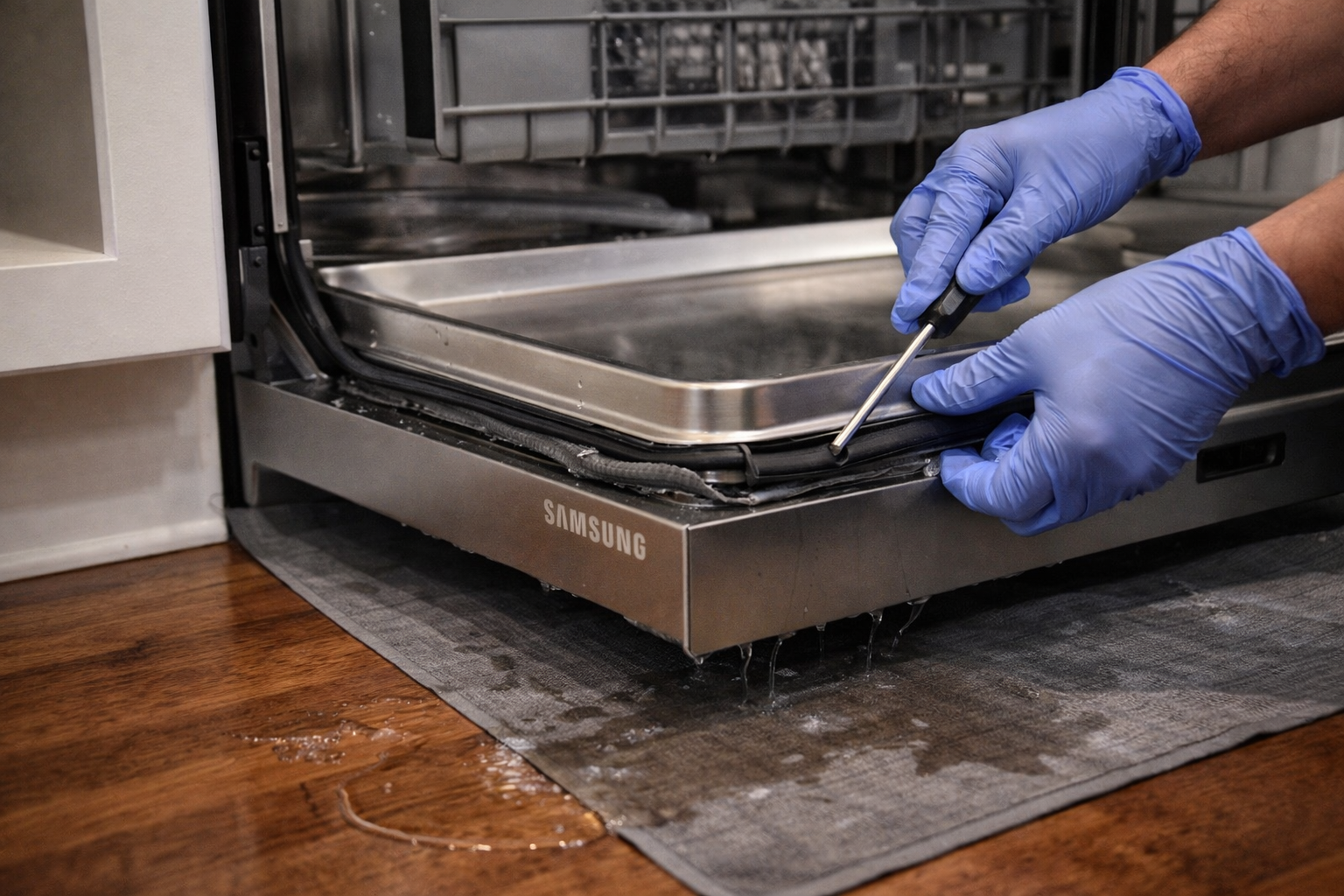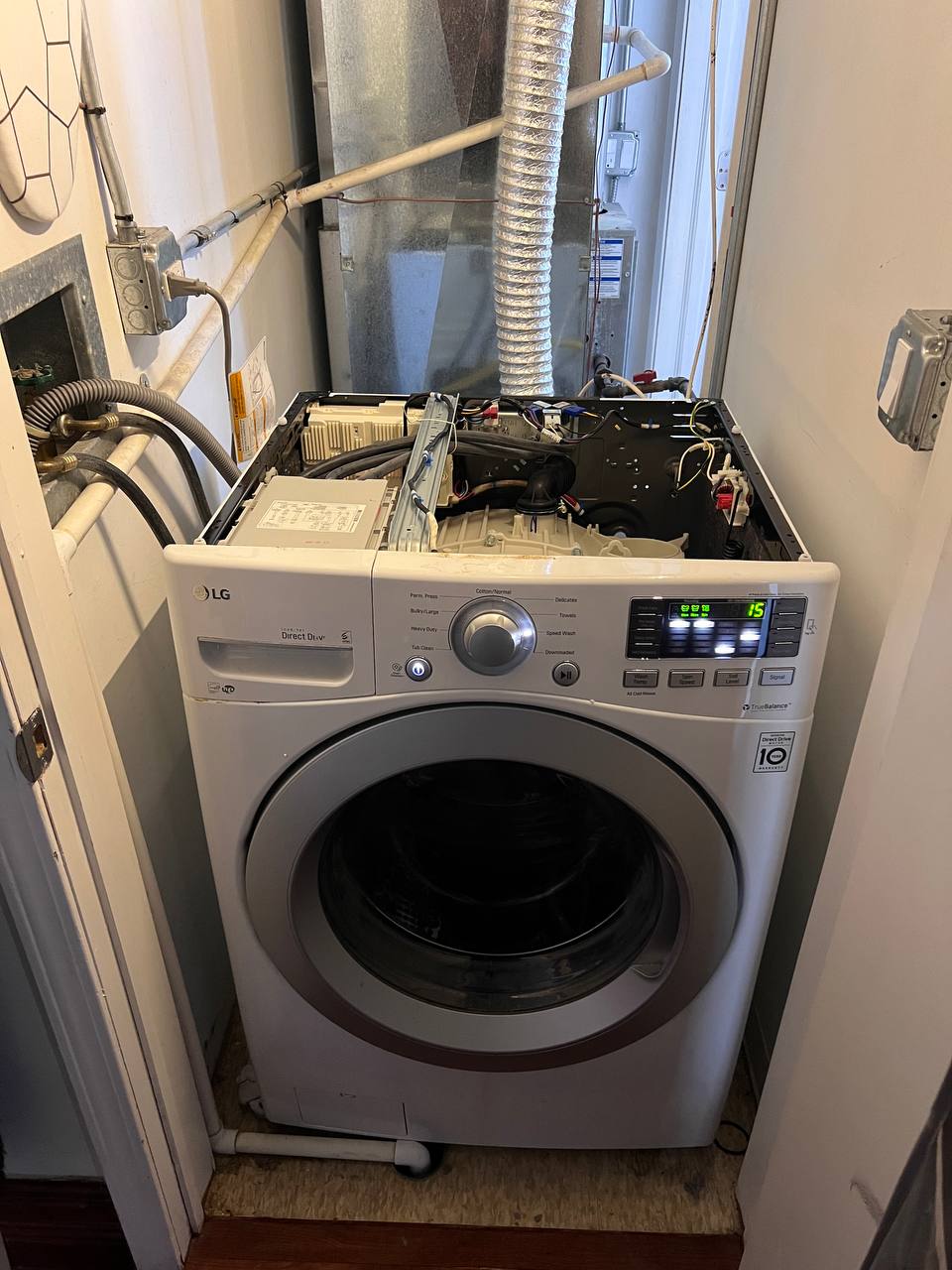Introduction
When your washing machine starts to sound more like a jet engine than a home appliance, it’s usually a sign that something inside needs attention. That’s exactly what happened to our Chicago client, whose front-load washer began making loud banging and grinding noises every time it reached the spin cycle.
At first, the homeowner thought it might just be an unbalanced load — but when the noise didn’t go away, they decided to call our team for a professional inspection.
Job details
Location: Chicago, IL
Appliance: Front-load washer
Issue: Loud banging and grinding noise during spin cycle
Turnaround: Same-day diagnosis, part replacement completed next day
Tech on site: Max
The problem: washer making loud, metallic noises
Upon arrival, our technician carefully tested the washer. Even during an empty spin cycle, the noise was constant — a deep, grinding rumble that vibrated through the floor. This type of sound usually points to worn drum bearings or shock absorbers that can no longer stabilize the drum during high-speed spins.
Once the machine was opened, it was clear that years of use had worn down the bearings, causing the inner tub to wobble. The shocks that help absorb vibration were also showing signs of fatigue.
Our diagnosis: worn drum bearings and weakened shock absorbers
The bearings sit behind the drum and allow it to spin smoothly on its axis. Over time, they can wear out due to water intrusion, detergent residue, or simple mechanical fatigue. When that happens, every spin cycle becomes louder — and if ignored too long, it can even damage the motor or drum itself.
In this case, the technician recommended a bearing and shock absorber replacement. It’s a detailed job requiring full disassembly of the washer (as seen in the photo), but it’s the best way to restore quiet performance and extend the life of the machine.
The repair process
- Disassembly – The washer was carefully taken apart to access the drum assembly, including removing panels and internal wiring.
- Drum removal – The entire drum unit was lifted out to expose the rear bearing housing.
- Bearing replacement – The old bearings were worn and rusty. The technician pressed them out and installed new high-quality, sealed bearings.
- Shock absorber replacement – The worn shocks were replaced with new OEM parts to stabilize the drum and reduce vibration.
- Reassembly and testing – After everything was secured, the washer was reassembled and tested through multiple cycles.
The result? Smooth, quiet operation — no more rattling or grinding sounds.
The result: like-new performance
After the repair, the client immediately noticed the difference. The washer ran quietly, with almost no vibration during the spin cycle. The technician also verified that the drum alignment and balance sensors were working perfectly.
Common reasons your washer makes loud noises
If your washing machine is suddenly louder than usual, it could be caused by:
- Worn drum bearings
- Broken shock absorbers or suspension springs
- Loose tub weights or counterbalance blocks
- Foreign objects (coins, nails, buttons) trapped between tub and drum
- Worn drive pulley or belt
Ignoring these signs can lead to more serious damage over time.
Maintenance tips to prevent washer noise problems
- Avoid overloading your washer
- Use high-efficiency detergent
- Check for foreign objects before each wash
- Keep the washer level on the floor
- Schedule annual maintenance
These small habits can prevent vibration, wear, and costly repairs later.
Bringing peace and quiet back to your laundry room
Washer noise is one of those problems that’s easy to ignore — until it gets too loud to overlook. The good news is, most of the time it’s an easy fix when handled by a professional. Our Chicago appliance repair technicians work on washers of every brand and model, and we’ve seen it all — from worn bearings to broken shocks and loose drums. If your washer is getting louder with every spin, we’re here to help. One quick service visit is often all it takes to make it run quietly again.


.avif)


.png)






.png)
